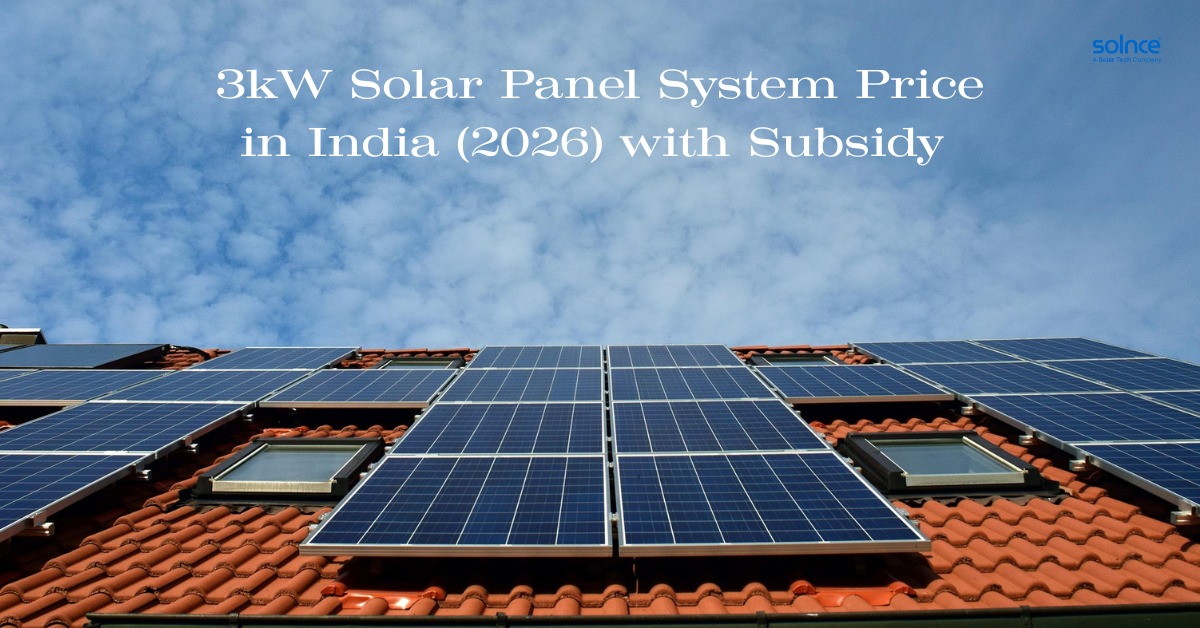.webp)
Rajasthan has beencalled the land of kings. It is known to individuals for its rich culturalheritage, architectural wonders, and dunes. Other than its monuments, Rajasthanhas another precious jewel: abundant sunlight. The state gets over 300 sunnydays every year, which makes it a potential leader in solar energy in India.
The RajasthanGovernment, together with the Central Government support launched the SolarSubsidy Scheme to enable solar energy access for residential and smallbusiness, and institutional customers. This program extends beyond governmentalpolicy because it allows people to adopt renewable, environmentally friendlyand cost-effective power.
What is the solar subsidy scheme?
A Solar SubsidyScheme is a sort of financial aid that is aimed at stimulating the residentialsector of the solar energy market through the provision of money. By givingpeople money through the Solar Subsidy Scheme, it creates an incentive forsolar systems on rooftops. The government gives financial aid to cover the costof setting up solar energy systems, lessening the heavy financial load onindividuals who wish to switch to solar energy.
The MNRE, incollaboration with RRECL, runs this program under the National Rooftop SolarProgramme Phase II as a part of the government's strategy from the Ministry ofNew and Renewable Energy. Rajasthan aims to make solar power a shared powersource for all families across the state.
What Are The Reasons Behind Your Interest In Solar Subsidy?
When people transition to solar energy systems, they gain numerous advantages forthemselves and the environment. Key Benefits:
- A solar-powered system allowshouseholds to decrease their monthly electricity expenses by reducing them by70–90%.
- The independence from grid powersources allows you to maintain an electricity supply even during power outages.
- Your solar investment recovers within a few years, so you can obtain free electricity afterward.
- The government backing for solarpower makes it a financially beneficial choice, which also supportsenvironmental conservation.
- The Solar Subsidy program in Rajasthan accepts applications from all categories of residents. The solar subsidy scheme welcomes various types of applicants who can participate.
Eligible categories include:
Individual homeowners' Resident Welfare Associations (RWAs), together with housing societies, qualify for the subsidy program. Small business owners. The subsidyprogram extends to educational institutions as well as hospitals and charitabletrusts, but with specific capacity limitations.
Important Note: The residential-focused subsidy program excludes eligibility for large-scale commercial and industrial buildings.
What level of financial support provides for solar subsidy?
The financial support you can expect plays acritical role in your solar project planning process. Subsidy Details as perMNRE Guidelines: Up to 3 kW system: 40% subsidy on the benchmark cost. 3 kW to10 kW system: 40% subsidy on the first 3 kW and 20% on the remaining capacityup to 10 kW. Above 10 kW: No subsidy for the excess capacity beyond 10 kW forresidential consumers.
Example: A 5 kWrooftop solar system installation will qualify for subsidy benefits. The first3 kW of the system qualifies for a 40% subsidy. The subsidy rate of 20% will beapplied to the next 2 kW of the system. The actual subsidy amount depends onboth market rates and the selection of approved vendors at the time ofinstallation
How to Apply for Solar Subsidy in Rajasthan?
The procedure to obtain a solar subsidy features a straightforward and easy-to-use interface. The followingeasy-to-follow application process will help you: Step-by-Step ApplicationProcess:
- Users need to visit the National Solar Rooftop Portal to register through their online account creation. You should complete and submit your application through the portal by providingboth personal and installation information.
- A DISCOM representative from yourlocal area will inspect site feasibility during Technical Feasibility Approval.
- Select an installation vendor thatholds government approval through the National Solar Rooftop Portal.
- A net meter serves as theinstallation to monitor the solar energy output and grid power usage. Theeligible subsidy amount gets directly transferred to your bank account aftercompleting the final verification.
Rajasthan vs Other States in Solar Energy Adoption
The state of Rajasthan maintains its position as the national leader in solar energy despite other parts of India expanding their solar infrastructure at a fast pace. Other Solar-Forward States:
- Gujarat: Pioneering rooftop solarpolicies and speedy subsidy disbursement.
- Maharashtra: Expanding rooftop andrural solar projects aggressively.
- Tamil Nadu and Karnataka: Leadersin solar farms and utility-scale solar projects.
The government of Delhi prioritizes solar power implementation within residential areas ofhousing societies and government-run buildings. Rajasthan maintains its leadership position through its ideal conditions for solar energy andsupportive government policies, and increasing public involvement.
The Environmental Impact of Solar Energy
Solar power provides both financial benefits and environmental conservation opportunities to the world. Each 5 kW rooftop solar array helps prevent the emission of more than 6 tons of carbon dioxide during one year. Each year, solar energy projects enablethe planting of over 100 new trees. Solar power adoption results in drasticreductions of greenhouse gas emissions that build a healthy setting for thegenerations ahead. Solar energy brings hope to the forthcoming generations.Through its solar energy dedication, Rajasthan creates an exceptional chancefor its residents to build a sustainable future. The sun provides equal opportunities to all residents solar of Bikaner, Udaipur, and Jaipur regardless oftheir occupation.
Final Thoughts:
Through the solar subsidy scheme, you can obtain reduced power bills while becomingself-sufficient in energy and helping create a cleaner planet. The government initiative for solar energy has evolved into an opportunity for citizens tojoin a brighter future, which combines sustainability with clean energy.
You can reachapproved solar vendors under RRECL or contact your local DISCOM officials when beginning your solar energy journey. The proper support system enables a seamless solar transition, which makes you a valuable contributor toRajasthan's promising future.





